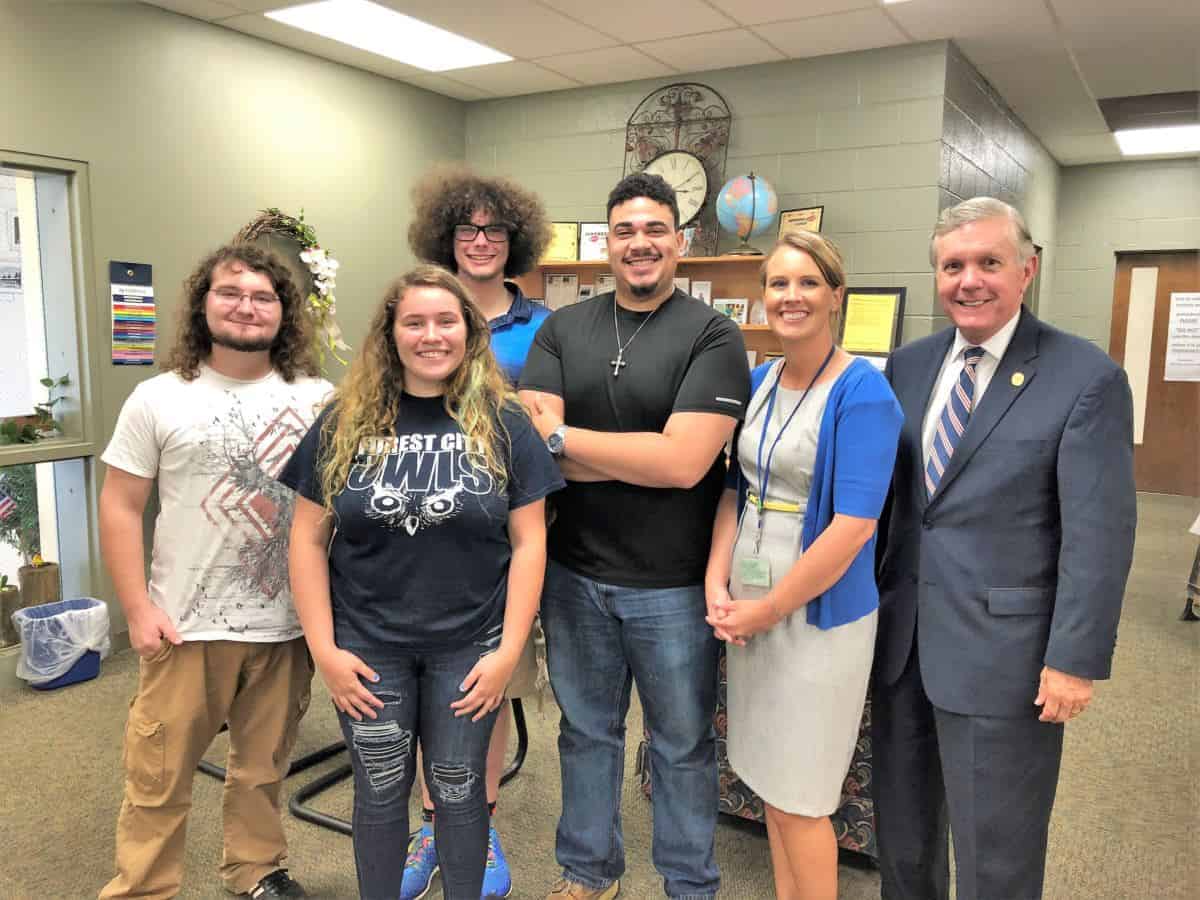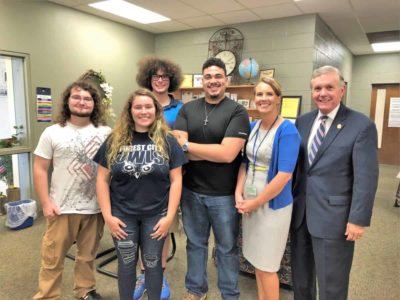

At a time of political polarization, the North Carolina General Assembly, with a strong bipartisan vote, adopted an important goal for North Carolina’s future. In doing so, it acknowledged the critical role North Carolina’s community colleges will play.
The goal was first established by myFutureNC, a nonprofit organization, and focuses on the coming decade. The goal states that North Carolina will have at least 2 million people ages 25 to 44 with workforce or academic credentials beyond high school by 2030. Currently, 1.3 million of those people hold such credentials. The goal was adopted by the North Carolina legislature with only one vote dissenting out of 170 members.
The goal is most appropriate and necessary for our state to remain competitive in the global economy. In a time when cyber integration and artificial intelligence are rapidly changing the job market, we must move forward to provide new skills. To maintain the status quo would mean a move backwards. It has been said that we are educating and training students for jobs that haven’t been created, to operate equipment that hasn’t been invented, and to solve problems that haven’t been identified. The task is daunting, and we must all rise and aspire to higher levels of attainment.
North Carolina’s community colleges will be the point of the spear in battling to accomplish this goal. They are an economic engine. In the last two decades, we have seen a viticulture industry grow from a baker’s dozen wineries before the year 2000 to 200 wineries and 400 vineyards and a $2 billion industry in our state today. Much credit is due to the programs started at Surry Community College in the Yadkin Valley. Similarly, the $9 billion craft brewing industry owes its beginnings to a program at A-B Tech, which is one of the best programs on the east coast. The cast of industries in partnership with community colleges in technology and advanced manufacturing across the state is too long to list, but these industries add billions more to North Carolina’s economic wealth. Further, the list of entrepreneurs created through community college programs and their small business centers is most impressive.
North Carolina’s community colleges will lead this effort because 60% of undergraduates in North Carolina attend a community college today, and we have the capacity to do more. Our college transfer programs are affordable, accessible, and high quality. Programs in the applied sciences, such as robotics, mechatronics, advanced manufacturing, welding, electrical, and machining prepare a ready workforce. Rapid response programs help to address immediate and specialized needs of new and expanding businesses.
Community colleges are excited about the legislative goal and are ready to lead the charge. Most importantly, we take this as a signal the legislature will support these efforts and provide the tools needed to accomplish the goal. I am sure when the great Coach Vince Lombardi spoke to his team in summer camp, he set the goal of winning the championship. I am equally sure he did not walk out of the room and return in December and ask “How did you do?” Instead, he made sure his team had the resources to get the job done.
In order to do the job, our community college will need support:
- Forward funding for new programs that align to employment demands. Our community colleges are the only educational entity funded in arrears. In other words, we are paid next year for this year’s enrollment. Therefore, if a new program is needed to provide contemporary skills, the money to provide equipment and instruction is hard to come by.
- Better pay for faculty and staff. Currently, North Carolina trails not only the national average, but is in the bottom quartile of the sixteen states in the Southeast region for community college pay. With baby boomers retiring, it is more and more difficult to retain qualified instructors and personnel. Compensation must be competitive.
- Uniform software for the system and colleges to assist with early intervention and detection of at risk students and to assist with retention and completion. Also, many technologies must be updated for the modern age in order to protect against cyber-attack and provide essential data.
- Scholarships to entice need based students and adult/non-traditional students to enter or return to school. Much of the skills gap is related to this demographic.
- Funding to adequately advertise the opportunities existing at community colleges and to take advantage of our “Hire Education” campaign.
We realize that providing these tools will take time and will be incremental, but if we are all serious about this goal (and I think we are and should be), we must work toward that end as soon as possible.
The President’s Association is proud to be a partner with our State Board, Community College System Office, and our Trustees Association, all of which display strong, excellent, and committed leadership. Working together and working with a legislature that realizes and appreciates the importance of our work, North Carolina can and will lead in economic prosperity for years to come.
Oliver Wendell Holmes, Sr. once said, “Most of us die with the music still in us.” He was acknowledging that most die without reaching their full potential. North Carolina’s 58 community colleges “let the music out” and add value to our students, allowing them to reach that potential. With the support of our elected officials, we can, and will, make great music for North Carolina and its people.
Stated another way, an evolving and ever-changing economy and job market are daunting, but working together and given the tools to reach success, we will achieve the legislature’s goal and build a better future for all of North Carolina.


